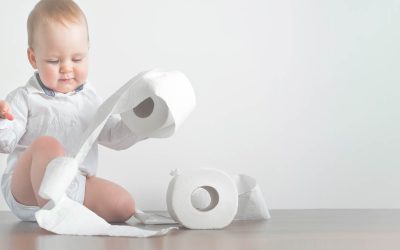Introducing solids: how do I do it?
I often get asked about introducing solids, particularly by first time parents. They want to know how to gage whether or not their child is ready, and how to practically start introducing foods other than breast milk or formula. The World Health Organization (WHO) and Health Canada now recommend waiting until 6 months of age to start solids, but some infants may be ready before that, say at 5 months or so. A baby who is ready to start solids can hold his or her head up independently, and can turn away from the spoon if the food is not wanted. He or she will open their mouth widely when they see the food coming, and keep the food in their mouth and swallow it as opposed to just squishing it out. Starting babies on solids around this stage of development may also be fascinated with your food, or the food others are eating around them, and may try to grab plates, cups, or pieces of food right from your hand! You may notice that they’re putting everything they can find in their mouths, drooling more when they see food, and can’t be distracted from the plate. Some parents tell me that their children no longer “seem satisfied” with breast milk or formula alone.
Starting feeding baby solids is an exciting time, and should be enjoyed!
Starting feeding baby solids is an exciting time, and should be enjoyed! Remember that in the beginning your baby may only take 1 or 2 small spoons of food once a day – they’re just learning and experiencing new things. At this point in time the majority of your baby’s nutrition will come from breast milk or formula. As he or she starts take larger volumes, and eats more times in the day, you may notice that his or her breast milk or formula intake drops slightly.
As long as your baby is still growing and gaining weight this is absolutely fine! Positive reinforcement is key when starting solids: you should be as excited as your baby is by this process! Let him or her get messy, hold a spoon, gurgle, and laugh with you. To help make this happen, choose a time in the day that works for both you and your baby to start feeding. A time when things are calm, there are few distractions and limited noise. Turn the TV or the ipad off, and place them out of your baby’s line of sight. Put your baby in a highchair and sit in front of them.
Many parents tell me that lunchtime is a good time to start because everyone’s awake, and there’s less hustle and bustle around the house. Offer small amounts of food on a baby-sized spoon, and let your baby decide how much to take off of each spoonful, and how many spoons to take in total. Try to let your baby see how excited you are, not how stressed you might be (because as exciting as introducing solids might be, for many parents, it’s just as stressful!). Babies can read your stress levels and respond, sometimes in ways that make you even more stressed!
The goal is to enjoy mealtimes together, and to start to set a positive tone around food and mealtimes that will hopefully last your baby the rest of his or her life!
Next article: I’m ready to start feeding baby solids – but what foods should I choose?










